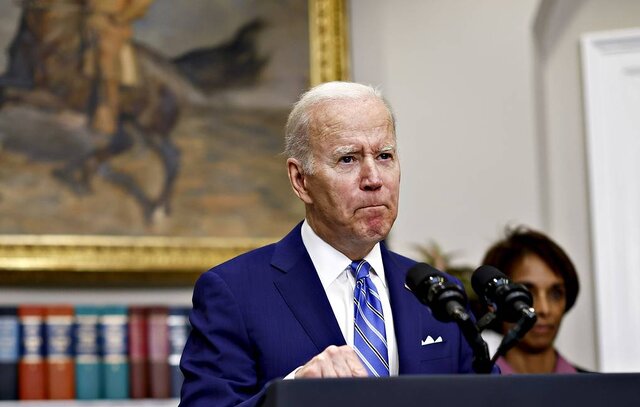In an interview with the website of the Strategic Council of Foreign Relations, Amin Parto, referring to the news published about the signing of a security agreement between Saudi Arabia and the Zionist regime during Biden’s upcoming visit to the region, he said: A prerequisite for a defense agreement is to have normal political relations between the two sides. Establishing normal political relationship with Saudi Arabia, because it is one of the most important countries in the Islamic world and also because of its geographical and economic position, is very important for the Zionist regime in political, propaganda and psychological terms. On the other hand, it seems that during his trip to the region, Biden is pursuing normalization of relations between Saudi Arabia and the Zionist regime in order to present it as a great political victory for himself.
Regarding the challenges and consequences of the normalization of relations between Saudi Arabia and the Zionist regime for Riyadh, the expert on Saudi affairs said: It is claimed that King Salman, the king of Saudi Arabia, stated that he has no principled opposition to such normalization, but he requested that this action not be carried out during his lifetime, but that the new king of Saudi Arabia should make such a decision.
Parto continued: Saudi Arabia insists that the Zionist regime must first solve the problems it has created in relation to Palestine and the region in order to get the privilege of normalizing relations from Saudi Arabia. In the meantime, Saudi Arabia is actually seeking to get concessions from the United States, because anyway, the Zionist regime is basically not in a position to give concessions to Saudi Arabia. In fact, Riyadh wants to get a security guarantee or sign a strategic agreement with the United States.
Zionist regime’s challenge for regional countries
Saying that considering the conditions of the Middle East, it is unlikely that a defense pact will be formed in the real sense, adding: For example, NATO was formed for the West against a common Soviet threat; but in the Middle East, due to the inconsistency and divergence of players and the multiplicity of threats, there is no such situation at all. Therefore, while issues such as the “Arab NATO” have been proposed, countries have denied their presence in the meeting attributed to it. They state that they do not want to confront Iran, because although they feel concerns from Iran, they also face threats from the Zionist regime; therefore, they cannot reach agreement with that regime.
Saudi Arabia does not pursue aggressive policies
Stating that the Zionist regime is trying to reduce the effectiveness of Iran’s military response to the military threats of that regime by increasing its mobility and capabilities, Parto added: Saudi Arabia is a conservative country and does not want to create war conditions. Saudi Arabia wants to maintain the status quo and does not welcome any action that leads to war; they know that the Zionist regime has long been looking for a conspiracy to involve Arab-Islamic countries in war; therefore, it proceeds cautiously and is not eager at all to undertake aggressive policies; although it certainly welcomes defensive arrangements.
He clarified: On this basis, anything that helps Saudi Arabia in missile and drone defense or affects Iran’s regional strategy will be welcomed by the Saudis; but they neither have the ability to enter into an aggressive action, nor do they see such an approach in their own favor.
The expert on Saudi affairs, commenting on the objectives of the Zionist regime in raising issues centered on the alliance with the Arabs, noted: The Zionist regime, which has occupied the Palestinian territories, considers the formation of an independent Palestinian state as a strategic danger for itself; therefore, any event that prevents creation of an independent Palestinian state will be welcomed; from the civil war in Syria to fueling Iranophobia, it is an opportunity for the Zionist regime.
Emphasizing that if Saudi Arabia enters into an agreement with the Zionist regime, it definitely does not want it to be the executor of its policies in the region unless it receives concessions from the United States, Parto said: Saudi Arabia is facing many challenges for establishing relations with the Zionist regime, including dissatisfaction of the public opinion; therefore, by putting forward such an agenda, Mohammed bin Salman is only seeking to get the so-called concessions from the United States and wants to try to resolve the issues he has with the US, such as the pressures regarding Khashoggi’s murder, human rights issues, the war in Yemen and the arms embargo, as well as the method of succession and removal of Saudi princes, from a position of power during Biden’s trip to the region, if possible.
He stated that the situation of war in Yemen is not yet clear and Saudi Arabia wants to enter with more force if it starts again, adding: In the situation where the energy market is affected by the sanctions against Russia, Saudi Arabia is trying to take advantage of this opportunity to bargain more against the United States.










0 Comments